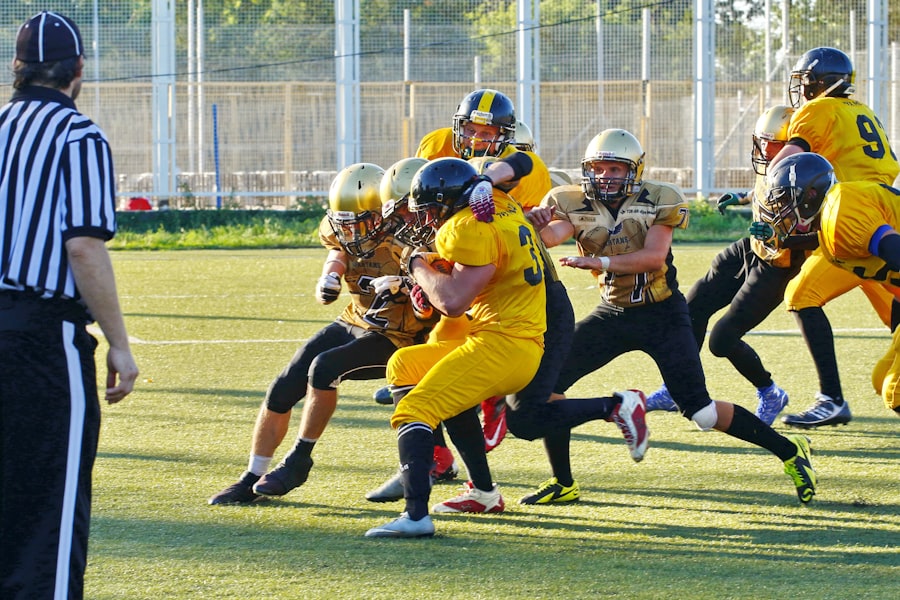Sports recruitment agencies serve as intermediaries between athletes and sports organizations, facilitating the connection that can lead to successful careers in various athletic disciplines. These agencies specialize in identifying talent, promoting athletes, and negotiating contracts with teams or sponsors. Their role is multifaceted, encompassing everything from scouting emerging talent to providing career guidance and support.
By leveraging their extensive networks and industry knowledge, sports recruitment agencies help athletes navigate the often complex landscape of professional sports. The recruitment process begins with the agency assessing an athlete’s skills, potential, and marketability. This evaluation is crucial, as it determines how the athlete will be positioned in the competitive sports market.
Agencies often have access to a wealth of data, including performance statistics, injury history, and psychological assessments, which they use to create a comprehensive profile of the athlete. This profile not only highlights the athlete’s strengths but also identifies areas for improvement, allowing the agency to tailor its approach to each individual’s needs.
Key Takeaways
- Sports recruitment agencies connect athletes with teams and opportunities, streamlining the recruitment process.
- Using a recruitment agency offers benefits like expert guidance, increased exposure, and access to exclusive opportunities.
- Choosing the right agency involves researching reputation, specialization, and alignment with your career goals.
- The recruitment process includes evaluation, representation, and negotiation to secure the best opportunities for athletes.
- Networking and building relationships are crucial for maximizing success through sports recruitment agencies.
The Benefits of Using a Sports Recruitment Agency
Engaging a sports recruitment agency can provide numerous advantages for athletes seeking to advance their careers. One of the primary benefits is access to a broader network of contacts within the sports industry. Agencies often have established relationships with coaches, scouts, and team executives, which can significantly enhance an athlete’s visibility.
This network can open doors that might otherwise remain closed, providing opportunities for trials, scholarships, or professional contracts that an athlete may not have been able to secure independently. Additionally, sports recruitment agencies offer expertise in contract negotiation and career management. Athletes often lack the experience or knowledge necessary to navigate the intricacies of contract terms, sponsorship deals, and endorsement opportunities.
Agencies employ professionals who specialize in these areas, ensuring that athletes receive fair compensation and favorable terms. This support can be invaluable, particularly for young athletes who may be overwhelmed by the business side of sports. By handling these negotiations, agencies allow athletes to focus on their training and performance without the added stress of contractual obligations.
How to Choose the Right Sports Recruitment Agency

Selecting the right sports recruitment agency is a critical decision that can significantly impact an athlete’s career trajectory. Athletes should begin by researching agencies that specialize in their specific sport or discipline. Each sport has unique requirements and dynamics, so finding an agency with a proven track record in that area is essential.
For instance, an agency that excels in soccer recruitment may not have the same level of expertise in basketball or track and field. Another important factor to consider is the agency’s reputation within the industry. Athletes should seek out testimonials from other clients and investigate the agency’s history of successful placements.
A reputable agency will have a portfolio of athletes who have successfully transitioned into professional roles or received scholarships to prestigious programs. Additionally, athletes should assess the agency’s communication style and approach to client relationships. A good agency will prioritize transparency and maintain open lines of communication throughout the recruitment process.
The Process of Working with a Sports Recruitment Agency
| Step | Description | Typical Duration | Key Metrics | Expected Outcome |
|---|---|---|---|---|
| Initial Consultation | Discuss athlete’s goals, skills, and recruitment needs with the agency. | 1-2 weeks | Number of consultations, athlete profile completeness (%) | Clear understanding of athlete’s profile and recruitment objectives |
| Profile Development | Creation of athlete’s recruitment profile including stats, videos, and achievements. | 2-4 weeks | Profile completion rate (%), number of highlight videos produced | Comprehensive recruitment profile ready for distribution |
| Agency Outreach | Agency contacts colleges, teams, or scouts on behalf of the athlete. | 4-8 weeks | Number of contacts made, response rate (%) | Interest generated from potential recruiters |
| Trial and Evaluation | Athlete participates in trials, camps, or interviews arranged by the agency. | 2-6 weeks | Number of trials attended, feedback scores | Assessment of athlete’s fit and potential offers |
| Negotiation and Signing | Agency assists in contract negotiations and finalizing agreements. | 1-3 weeks | Number of offers negotiated, contract terms agreed | Signed contract with team or institution |
| Ongoing Support | Continuous support including career advice, training, and marketing. | Ongoing | Number of support sessions, athlete satisfaction rate (%) | Long-term career development and success |
Once an athlete has chosen a sports recruitment agency, the process typically begins with an initial consultation. During this meeting, the agency will gather information about the athlete’s background, goals, and aspirations. This step is crucial for establishing a personalized strategy that aligns with the athlete’s unique circumstances.
The agency may conduct assessments to evaluate the athlete’s skills and potential, which will inform their approach moving forward. Following this initial phase, the agency will begin actively promoting the athlete to relevant teams and organizations. This may involve creating promotional materials such as highlight reels, performance statistics, and personal bios that showcase the athlete’s abilities.
The agency will also leverage its network to identify potential opportunities for trials or competitions where the athlete can demonstrate their skills in front of scouts and coaches. Throughout this process, regular communication between the athlete and agency is vital to ensure that both parties are aligned on goals and expectations.
Maximizing Your Potential Through a Sports Recruitment Agency
To fully leverage the benefits of working with a sports recruitment agency, athletes must take an active role in their development and engagement with the agency. This includes being open to feedback and willing to make necessary adjustments to their training regimens or performance strategies. Agencies often provide valuable insights based on their industry experience, and athletes who embrace this guidance are more likely to see positive results.
Moreover, athletes should maintain a proactive attitude towards their career development. This means not only relying on the agency for opportunities but also seeking out additional avenues for growth. Participating in training camps, attending showcases, and engaging with mentors can enhance an athlete’s profile and increase their chances of being noticed by scouts.
By combining their efforts with those of the agency, athletes can create a comprehensive strategy that maximizes their potential and positions them favorably within the competitive landscape.
The Importance of Networking in Sports Recruitment

Networking plays a pivotal role in sports recruitment, as relationships often dictate opportunities within the industry. Sports recruitment agencies are adept at building and maintaining these connections, which can be invaluable for athletes looking to break into professional sports. The ability to tap into an established network can lead to introductions to key decision-makers who might otherwise be inaccessible.
Athletes themselves should also prioritize networking as part of their career strategy. Engaging with coaches, attending industry events, and connecting with fellow athletes can create additional pathways for opportunities. Social media platforms have become powerful tools for networking in sports; athletes can showcase their skills while also engaging with fans and industry professionals alike.
By fostering relationships within their sport and beyond, athletes can enhance their visibility and create a support system that aids in their recruitment journey.
Common Misconceptions About Sports Recruitment Agencies
Despite their growing prominence in the sports industry, several misconceptions about sports recruitment agencies persist. One common myth is that these agencies only cater to elite athletes or those with exceptional talent. In reality, many agencies work with athletes at various levels, including amateurs seeking scholarships or aspiring professionals looking for guidance.
The focus is often on potential rather than just current performance metrics. Another misconception is that engaging an agency guarantees success or a professional contract. While agencies provide valuable resources and connections, they cannot control outcomes or ensure placements.
Success ultimately depends on an athlete’s dedication, performance, and ability to capitalize on opportunities presented by the agency. Athletes must understand that while agencies can facilitate connections and negotiations, their own hard work and commitment are crucial components of achieving their goals.
Success Stories: Athletes Who Found Success Through Sports Recruitment Agencies
Numerous athletes have successfully navigated their careers with the assistance of sports recruitment agencies, showcasing the potential impact these organizations can have on an athlete’s journey. For example, a young soccer player from a small town may have been overlooked by local scouts but was discovered by an agency specializing in soccer recruitment. Through targeted promotion and networking efforts by the agency, this player was able to secure a trial with a professional club and ultimately signed a contract that launched their career.
Similarly, many collegiate athletes have benefited from recruitment agencies when transitioning from college sports to professional leagues. A standout basketball player who excelled at a Division I university might have faced challenges in gaining attention from NBA scouts without the support of an agency. By leveraging their connections within the league and providing expert guidance on navigating the draft process, the agency helped this athlete secure a position on an NBA team.
These success stories illustrate not only the effectiveness of sports recruitment agencies but also highlight the importance of collaboration between athletes and these organizations in achieving career aspirations within competitive sports environments.



